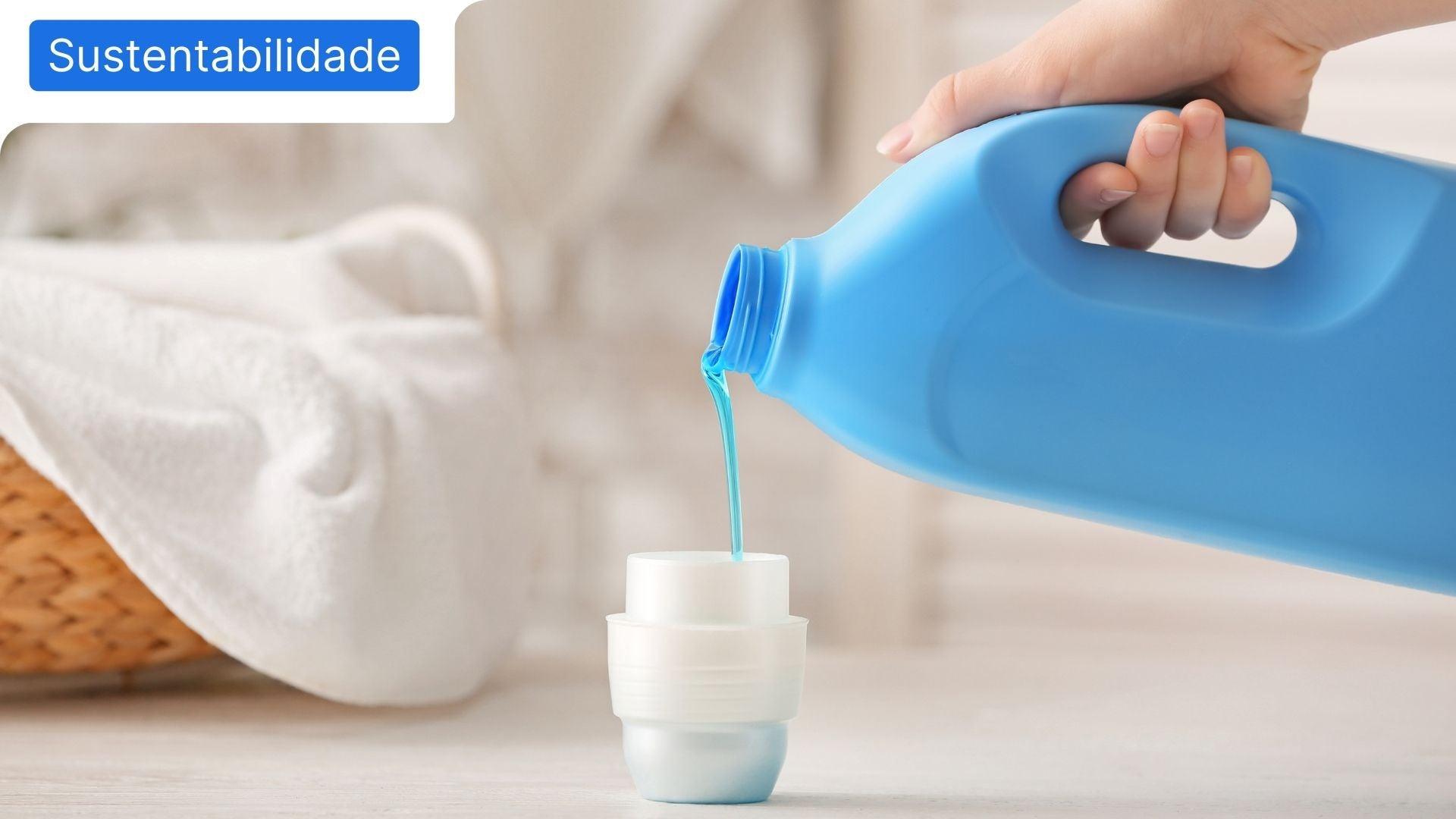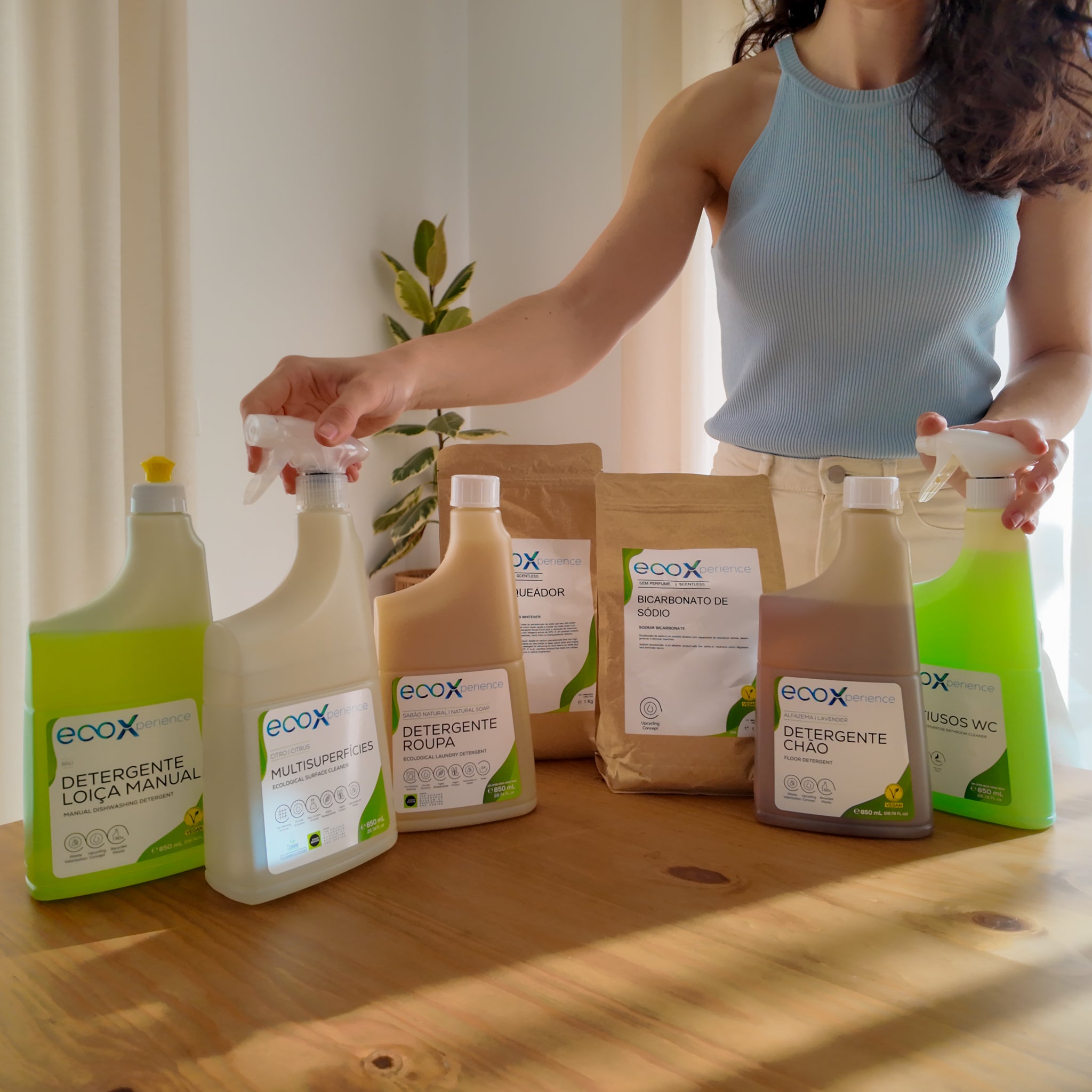
Environmental impact of conventional detergents
Washing the dishes, clothes, floors, objects... Oh, and the car! Have you ever stopped to think about the day or days when you don't use at least one detergent? It's true, we use cleaning products practically every day.
If, under normal circumstances, cleaning products are already used extensively in our daily lives, the current pandemic has led to even greater care being taken when cleaning, and therefore, the use of detergents has increased. But do you know what happens to the residue from these products after you use them?
Conventional detergents have a major negative impact on the environment as they pollute water and soil. But why? What are these products made of? What is the environmental impact of detergents? And are there any solutions or alternatives? Find out all about it in this article.
Know the composition and environmental impact of detergents
The chemical substances that are part of the “DNA” of conventional detergents are responsible for the environmental impact of these products on our planet. We explain why.
Synthetic surfactants
Detergents contain synthetic surfactants that come from petroleum, a non-renewable and highly polluting raw material.
Kidnapping agents
The majority are made up of phosphates which, despite increasing cleaning efficiency, cause eutrophication of water (increased growth of aquatic plants) and affect the photosynthesis of living beings.
It is important to highlight that they create a layer of foam that prevents oxygen from entering the aquatic environment and that also removes the oily layer that covers the birds' feathers and allows them to float in the water.
Fragrances, dyes and thickeners
Detergents may also contain small amounts of fragrances, dyes and thickeners that can cause problems for human health, such as allergies or skin irritations, and for the environment as they alter the chemical composition of the water.
Preservatives
Responsible for increasing the durability of cleaning products, they are also a “no-no” for wildlife.
This entire chemical composition of conventional detergents means that they are not 100% biodegradable in a short period of time and have negative consequences for the environment.
Do you often see products with the word biodegradable on their labels? As a rule, all of these products are biodegradable, but what is at stake is the decomposition time of their components: complete degradation in hours or days is different from partial degradation in months or years.
The environmental impact caused by conventional detergents starts from the extraction of raw materials until they reach your home:

And are there already alternatives to this problem?
After learning about the significant consequences that simply cleaning with a non-biodegradable detergent can have on the health of the environment, it's time to learn that there are sustainable alternatives that can help you reduce your ecological footprint.
You now have ecological detergents at your disposal that can enter your home, take care of it and when they leave, they also do not harm the environment or the future of the planet.
And did you know that you can combine business with pleasure and, in addition to reducing the environmental impact of conventional detergents, you can give new life to used cooking oil?
In Portugal, around 35,000 tonnes of used cooking oil are disposed of in the sewage system each year, and wastewater treatment plants spend around 300 million euros to remove it from the water. This waste has a number of impacts on our homes, public water supply, waterways, soil and climate.
For this reason and to reduce these negative points, EcoX has developed a special formula that allows used cooking oils to be transformed into ecological detergents. This is an innovative circular economy concept in the detergent sector that makes use of a waste that is harmful to the environment and difficult to dispose of.
EcoX's production model, unlike the production model of conventional detergents, reduces the waste of virgin active material by around 50% and also avoids the extraction of raw materials and their separation, as well as storage and distribution (and the transport costs that all these processes entail).
It is now possible to reduce the environmental impact of conventional detergents while giving new life to used cooking oil.

We are the power of cleanliness and comfort in your life, with innovative and sustainable solutions through the valorization of waste: we are world pioneers in the production of ecological detergents made from waste (used cooking oil), using a technology based on the circular economy.
They are 100% Portuguese products and are produced in certified companies that transform the waste of our partner entities into biodegradable detergents.
As they are produced from raw materials of plant origin, they are highly natural and biodegradable. Their degradation occurs in two phases: 60% occurs in less than 24 hours due to the absence of complex carbonate chains, the remaining 40% decomposes within a few days of use.
Another advantage is that they do not contain ingredients of animal origin nor are they tested on animals.
Author: Daniela Matos







